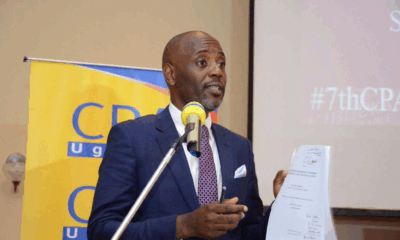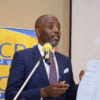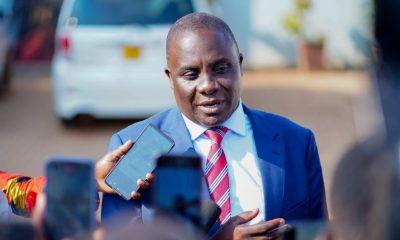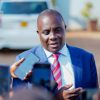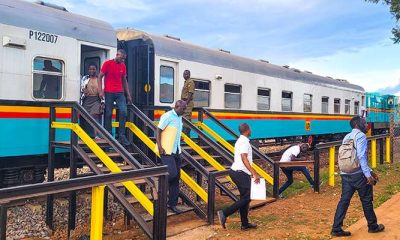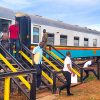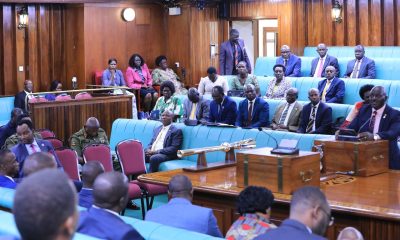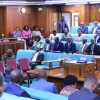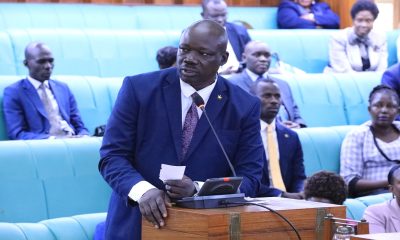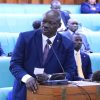Parliament
How COVID impacted the 2021 vote
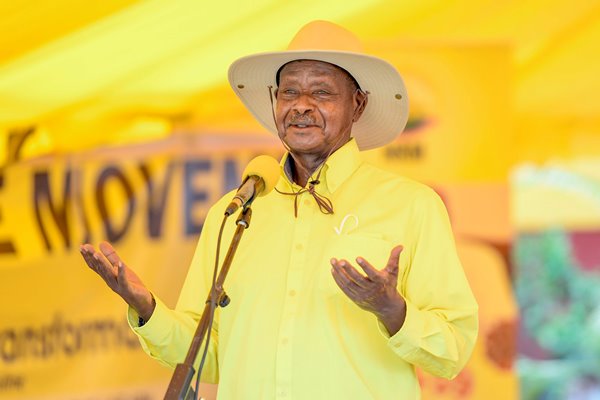
President Musevenii
Ugandans are this week going to polls to elect new leaders across the country ranging from councillors at town council level right up to the most important office of the President.
But most Ugandans have never witnessed an election quite like this before. The uniqueness of the poll has largely been influenced by the COVID-19 pandemic and the corresponding restrictions that accompanied it, aimed at reducing the number of infections and consequently, the number of people going to hospitals which threatens to overwhelm health workers.
Back in March – April, President Yoweri Museveni had ruled out the possibility of holding elections if the situation got worse. But the reality seems to have caught up with him that in order for him to survive, he could not afford to suspend the elections, by declaring a national emergency.
As a way to update the population, President Museveni enjoyed unlimited airtime on the electronic, print and social media to sensitize the masses. The health crisis gave him a silver lining to remind the masses that his government was in charge, despite the fact that many health centres are sick themselves. It was during this period that the President increased his interaction with young people – the Bazukulu – and the biggest proportion of This was the first instance in which COVID impacted the vote.
The initial response by most countries of declaring lockdowns as a mechanism to deal with the pandemic quickly fell out of fashion. So even when COVID cases multiplied, most governments were unwilling to keep their people in prisons, especially as it became clear that the economic and social cost of the lockdowns such as starvation, collapse of businesses, was far higher than earlier thought.
As a result, countries became more confidence in taking on bigger tasks such holding elections or opening up public transportation. From Malawi, to Tanzania, to Central African Republic, the United States and now Uganda, leaders have decided to preach individual responsibility to prevent the COVID infection as life goes on.
In Uganda though, many commentators argued that the government’s use of restrictions against public gatherings in the name of controlling the spread of the pandemic was a disguised way to suppress the voices of its opponents. The government declared that campaigns would be conducted in a scientific manner. Neither did it allocate funds to all parties, but its representatives went ahead to ban opposition leaders from appearing on their radio stations.
Buganda Katikkiro Charles Peter Mayiga, the Head of the Episcopal Conference of the Catholic Church and Mityana Diocese Bishop Dr. Anthony Zziwa are among the influential figures that have spoken out against the abuse of COVID rules to suppress political opponents and their supporters.
In May, 2020 during an interview with NBS Television, President Museveni said it will be madness to hold an election in the middle of a pandemic.
He said “If the virus can stop by June or July, we can have the elections. We don’t have to have a long campaign time, it is easy to organize. If it doesn’t, it is very dangerous. Countries like Iran went on with the elections when the virus was still around and it caused a lot of problems, it is very dangerous.”
However President Museveni backtracked his decisions following a closed door meeting with the Electoral Commission and Ministry of Health, where they agreed that the country should hold scientific campaigns and elections.
The president has also ignored advice from religious leaders and other sections of the population calling on him to suspend elections as a way to reduce the tension and human rights violations that came with the COVID regulations.
Late December, 2020, The Uganda Joint Christian Council through the Catholic Archbishop Cyprian Kizito Lwanga in a press conference held in Kampala asked President Museveni to postpone the elections.
“Politicians are not following Standard Operating Procedures and this has increased the spread of COVID-19. We request the government to postpone the elections for three years,” Archbishop Lwanga noted.
Indeed the chairman of the Electoral Commission, Justice Simon Byabakama Mugenyi , banned physical and Mass campaigns in 14 districts citing the surge in the Covid-19 cases registered in the districts which the Ministry of Health termed as high risk districts.
The EC spokesperson, Paul Bukenya said campaign meetings in the said districts which are considered to be registering high spread of the virus had been suspended starting December 26, 2020 until further notice.
A number of people are expressing genuine fear that voting amid crowds is too big a risk to take.
Edward Tujunirwe, a senior executive at the Uganda National Council for Science and Technology posted on Twitter that what the crowds he’s been witnessing and the risks associated with large gatherings, it’s safer for him to not vote.
Sumaya Nakitende, also posted on one WhatsApp group urging members to choose health over politics by when she said: “Please keep away from crowds. Better to be yourself than to vote and get COVID.”
But the government, the electoral commission sought to reassure the masses that they are on top of the game in terms of preventing infections during elections.
EC also suspended campaigns in over 14 districts on grounds that candidates were continuing to gather people.
“The EC has suspended campaign meetings in districts/cities categorised by Ministry of Health as having high spread of Covid-19. From 26/12/20, no campaign meetings will be held in Mbarara, Kabarole, Luwero, Kasese, Masaka, Wakiso, Kabarole, Jinja, Kalungu, Kazo, Kampala and Tororo,” a tweet from Paul Bukenya the EC Spokesperson.
Rehema Namulondo, 60, a resident of Rubaga Division in Kampala, said that she was particularly discouraged by the number of people that turned up to collect Voter Location Slips.
“The crowding at our parish was too much, no masks no social distancing, the distribution of the VLS was a menace to us. This has made me to think twice on taking part in the coming elections, Covid is too much in our area, we just lost an elder a week back and given the political fever and excitement on the polling day, ticking of Ballots using the same pens and ink for thumbs. I believe the rate of infections will be high,” she said.
Rosemary Tinkasimire a resident of Hoima district, also wasn’t different from Namulondo, she said they have registered an increase in cases ever since campaigns started which has left them in fear of contracting the virus on the polling day given to the nature of our elections where people line up waiting for their names.
“Hoima cases have tremendously increased apart from the Kyangwali Refugee settlement incident, I believe on polling day people from different areas are coming to vote and this will mean mixing amongst our selves am fearing that I may contract the virus on the polling day yet ibhad kept my self safe,” she said.
John Mary Odoi the technical advisor at The Citizens Coalition For Electoral Democracy (CCEDu) an election Observer organization, said with the Covid-19 ravaging communities, this may affect the Voter turn out with fear of contracting the virus.
He said the factors to the low Voter turn out maybe many but given to the effect of Covid visa vs following the guidelines , he believes there will be delay in voting, where people will have to make longer lines given the two meter rule
.
“If EC is serious, we may see people failing to vote even if they come at the polling centers.
He added “ I will not be surprised if some people stay home, COVID will greatly affect this election, the only thing we can pray for is to follow the guidelines and take responsibility over our lives even if it means to cause a delay in the process.”
However, Abubaker Kayondo from the Electoral Commission Legal department, said its an individual’s right and decision to vote or take part in the elections.
He said people should come out in numbers following the different Ministry of Health guidelines and vote for their different leaders.
“We know COVID-19 is an big problem, but it someone’s right to vote, I implore every Ugandan to go and vote their leaders by following the SOPs outlined by the Ministry of Health, no-one should stop you to make a personal decision which indeed is your right,” Kayondo said.
He said as the Electoral Commission, they will make sure that at all polling centers the different Covid-19 guidelines are followed in order to curb the Covid-19 virus from spreading.
Comments



